Publikationen
-
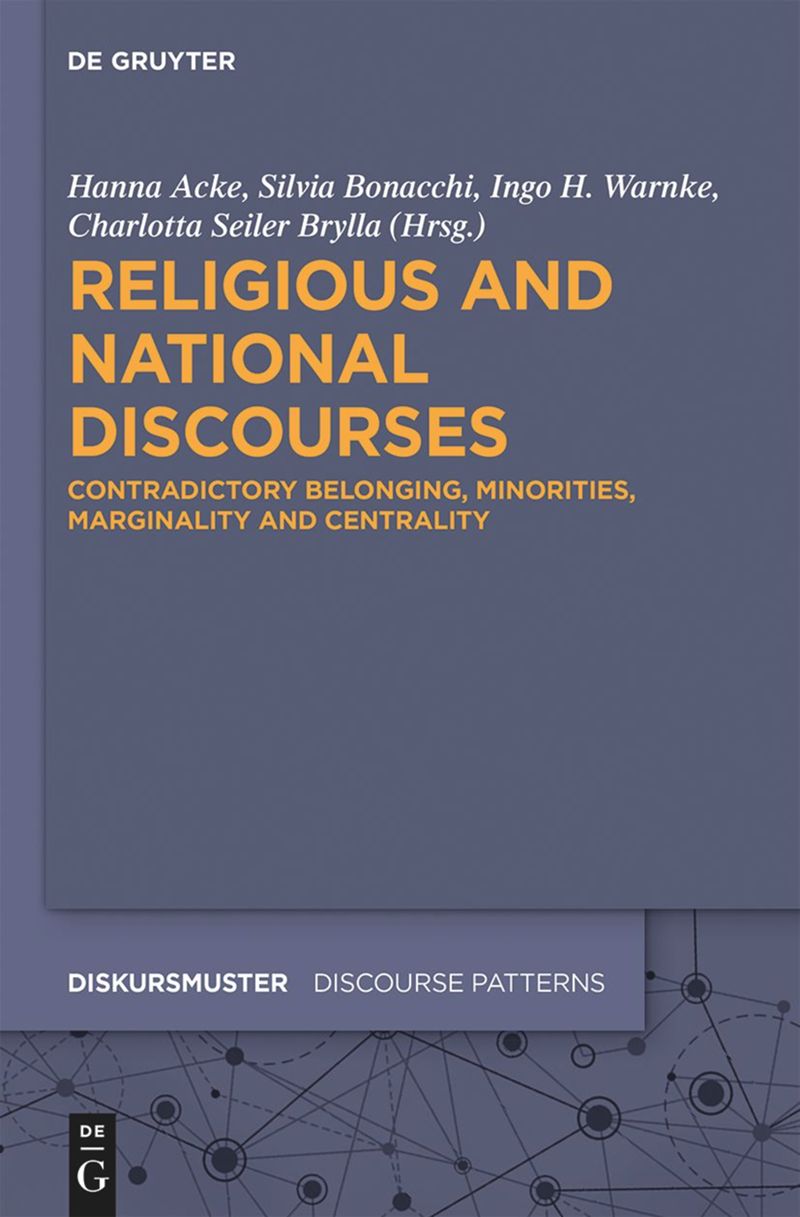 Minorities and Majorities, Marginality and Centrality. An Introduction
Minorities and Majorities, Marginality and Centrality. An Introduction
-
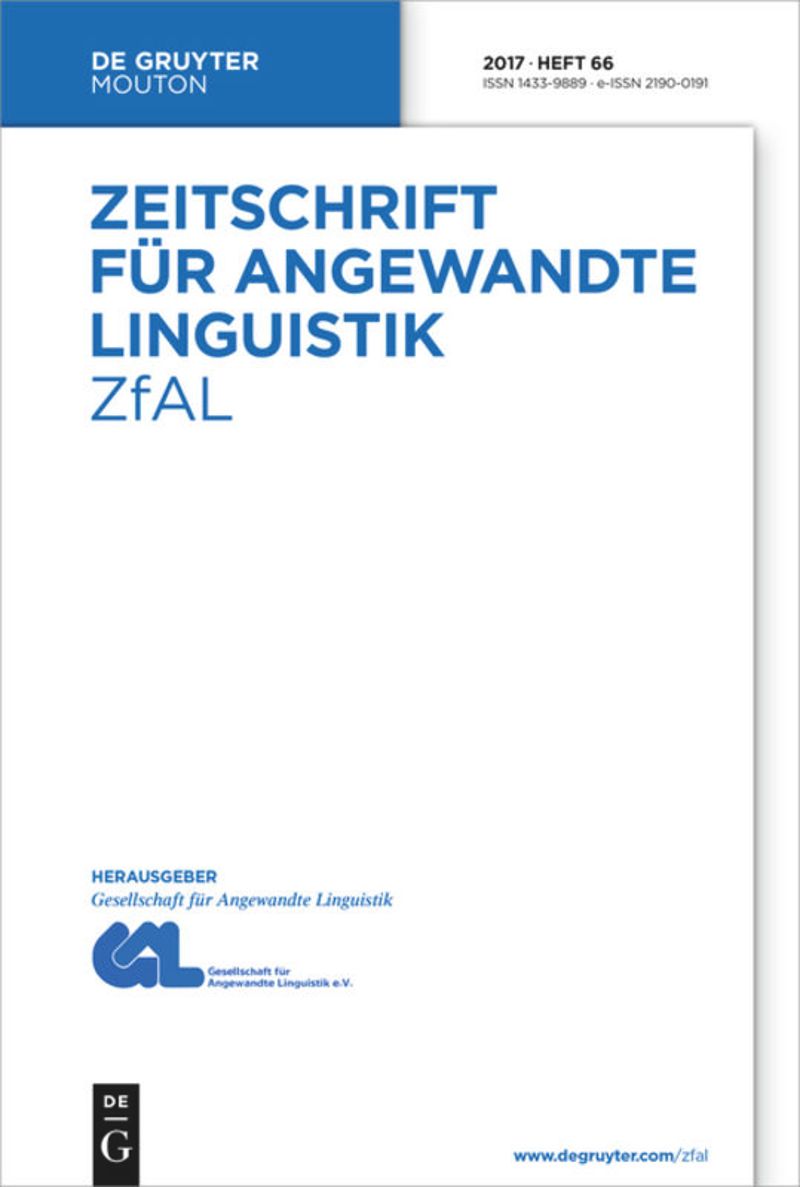 Marginalisierung in der Marginalität? Ein Blick auf digitale Räume anhand sprachlicher Konstruktion von randständigen Positionen im Kontext von Asexualität
Marginalisierung in der Marginalität? Ein Blick auf digitale Räume anhand sprachlicher Konstruktion von randständigen Positionen im Kontext von Asexualität„Our mascot should be a unicorn considering how many people don’t believe asexuality is a thing.“[1]
This article discusses marginalisation in internet forums and blogging platforms using the example of asexuality blogs and discussion threads. While large corpora of both English and German, such as COCA and DeReKo, contain hardly any mention of asexuality and these few instances of asexuality and related expressions typically refer to plant biology, online communities do discuss aspects of life as an asexual person and their experiences of marginalization even within the LGBTQ community. Definitions of asexuality, including its delineation from other identities, and how asexual people articulate conflicts and other issues on these online platforms are discussed in detail. Particular attention is paid to how this particular group is constructed by others, how they construct themselves as not being part of the mainstream, and the role (self-)marginalisation plays in this context.
-
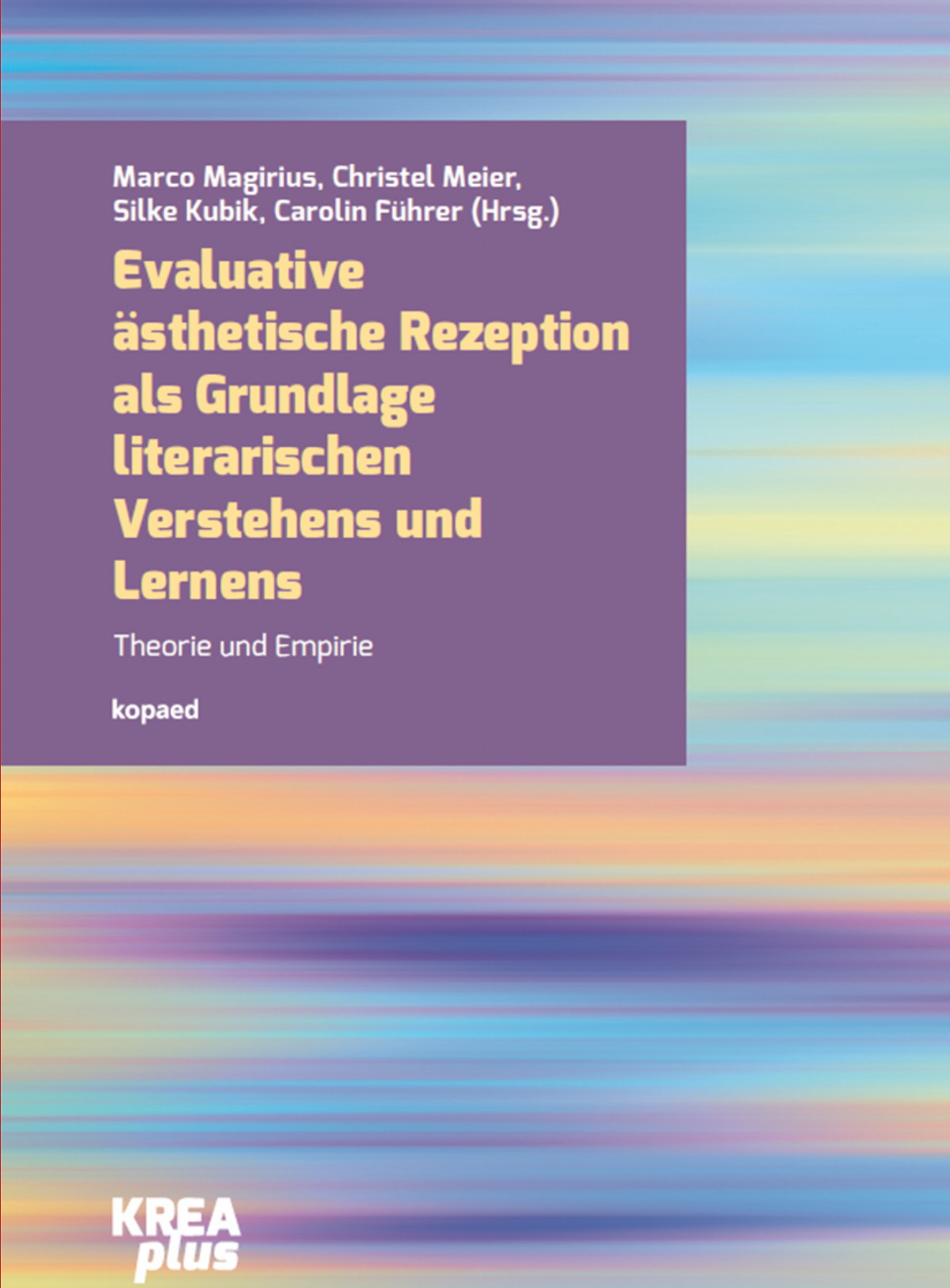 Gänsehaut, Liebe und Langeweile. Sprachliche Konstitution von Emotionen in Laienbuchrezensionen aus dem Schullektürekanon
Gänsehaut, Liebe und Langeweile. Sprachliche Konstitution von Emotionen in Laienbuchrezensionen aus dem Schullektürekanon
-
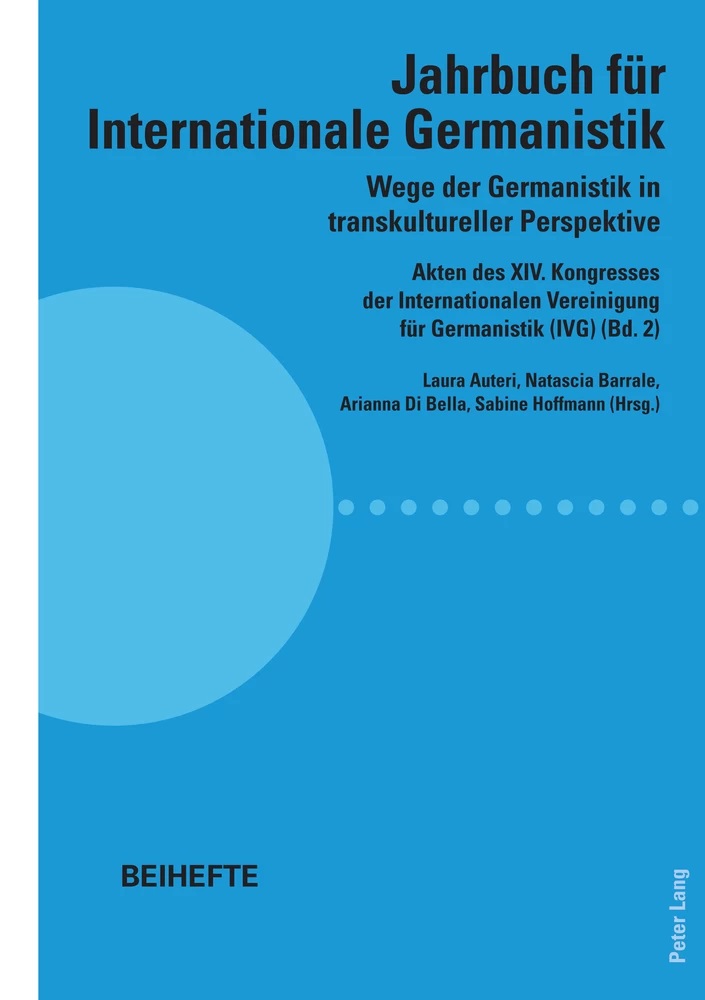 Digitale Räume als Aushandlungsort für Zentralität und Marginalität
Digitale Räume als Aushandlungsort für Zentralität und Marginalität
-
 »Everything a Learner Needs« – Constructions Of Linguistic and Social Marginality/Centrality In Discourses about (German) Language Learning and Multilingualism
»Everything a Learner Needs« – Constructions Of Linguistic and Social Marginality/Centrality In Discourses about (German) Language Learning and Multilingualism
-
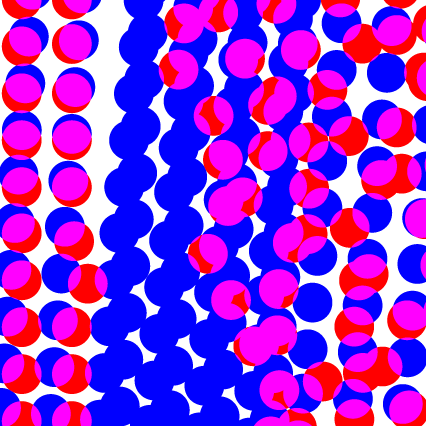 Radical Democratic Care: eine sorgetheoretische Perspektive auf Praxen des Widersprechens
Radical Democratic Care: eine sorgetheoretische Perspektive auf Praxen des Widersprechens
-
 Paradoxien des Auditiven? Ambiguitäten und Diskrepanzen beim Hören und in der Musik
Paradoxien des Auditiven? Ambiguitäten und Diskrepanzen beim Hören und in der MusikIn der Psychologie der Musik und der auditorischen Grundlagenforschung wird von „Paradoxien des Hörens“ beziehungsweise „musikalischen Paradoxien“ gesprochen (Deutsch 1986, 275–280; Utz 2015, 22–52; Deutsch 1995). Aber können Höreindrücke wirklich paradox sein? Was sollte es genau heißen, „Paradoxien zu hören“ oder gar „paradox zu hören“? Wir werden dieser Frage im Folgenden nachgehen und dabei zunächst den Begriff der Paradoxie für den gegenwärtigen Kontext schärfen – n ämlich im Sinne einer Ambiguität und einer Diskrepanz. Anschließend erarbeiten wir dazu eine Typologie, die zugleich auch die grundlegende Bedeutung aufzeigt, die insbesondere Ambiguitäten für die Musik – genauer: für den anhaltenden Reiz von Musikstücken – haben.
-
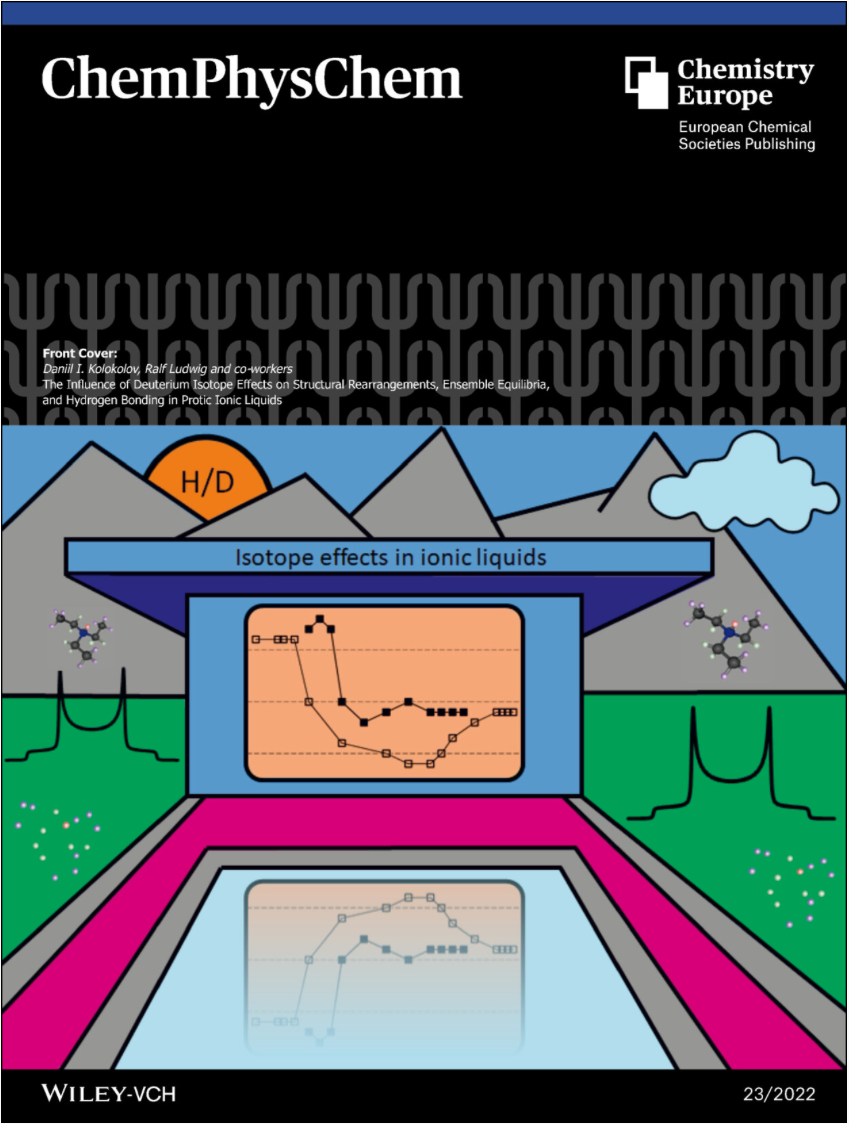 Can a Finite Chain of Hydrogen Cyanide Molecules Model a Crystal?
Can a Finite Chain of Hydrogen Cyanide Molecules Model a Crystal?When calculating structural or spectroscopic properties of molecular crystals, the question arises whether it is sufficient to simulate only a single molecule or a small molecular cluster or whether the simulation of the entire crystal is indispensable. In this work we juxtapose calculations on the high-pressure structural properties of the (periodic) HCN crystal and chains of HCN molecules of finite length. We find that, in most cases, the behavior of the crystal can be reproduced by computational methods simulating only around 15 molecules. The pressure-induced lengthening of the C−H bond in HCN found in calculations on both the periodic and finite material are explained in terms of orbital interaction. Our results pave the way for a more thorough understanding of high-pressure structural properties of materials and give incentives for the design of materials that expand under pressure. In addition, they shed light on the complementarity between calculations on periodic materials and systems of finite size.
-
 Sounds of Democracy. The Interview as an Instrument of Heuristic Attention to Discursive Voices
Sounds of Democracy. The Interview as an Instrument of Heuristic Attention to Discursive VoicesAgainst the backdrop of general considerations of the interview as a genre, the paper discusses under which theoretical conditions interviews are suitable instruments for discourse analysis. With a special interest in questions of the linguistic constitution of shared knowledge in discourse, the authors outline the discourse-linguistic status of interviews in a systematic way.
-
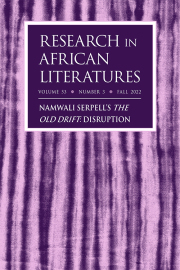 State of the Planet. Homi Bhabha and Namwali Serpell in Conversation
State of the Planet. Homi Bhabha and Namwali Serpell in ConversationAfter explaining the rationale for bringing the author of The Old Drift, Namwali Serpell, and critical theorist Homi Bhabha into conversation, this interview with both of them explores some of the key themes of Serpell’s novel in relation to its wider geopolitical and historical context. Beginning with how we can understand the state of the planet in the present historical moment, the discussion expands to explore the broad context of more themes in the novel, which includes the place of gender and sexual politics, a global pandemic in a time of national and financial closures, cosmopolitanism, the space race and reverberations of the Cold War in the present, and the continued relevance, if any, of postcolonial theory, technology, revolution, and futurity.
-
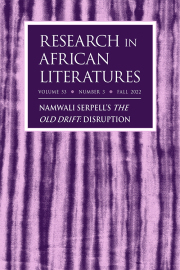 Introduction. Namwali Serpell’s The Old Drift: Disruption
Introduction. Namwali Serpell’s The Old Drift: Disruption
-
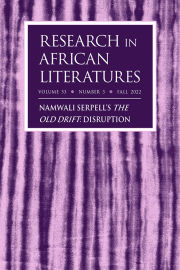 Namwali Serpell’s The Old Drift: Disruption (Special Issue)
Namwali Serpell’s The Old Drift: Disruption (Special Issue)Research in African Literatures, the premier journal of African literary studies worldwide, serves as a stimulating vehicle in English for research on the oral and written literatures of Africa. Reviews of current scholarly books are included in every number, and a forum offers readers the opportunity to respond to issues raised in articles and book reviews.
-
 Agency and Incentives of Diasporic Political Influencers on Facebook Malawi
Agency and Incentives of Diasporic Political Influencers on Facebook MalawiThis article examines the agency and incentives that drive the activism of diasporic political influencers on “Facebook Malawi,” an online imagined political community. In their seminal work on “social media dissidents” and “social media self-made activists” in the Global South, Matsilele and Sharra demonstrate that social media activists engage with different strategies to initiate movements, mobilize citizens, and create their brands in strong opposition to authoritarian regimes which repositions them as freedom fighters in the eyes of the masses and enemies of the state. Correspondingly, we frame diasporic political influencers as actors aided by digital technologies who engage in “long-distance nationalism” on Facebook against authoritarianism in the homeland. We deploy a qualitative mixed methods approach to analyze Facebook data of two diasporic political influencers, Onjezani Kenani and Manes Winnie Hale, who gave informed consent to use their Facebook data generated in 2018 and 2021, a period preceding and following the 2019 Malawi tripartite elections. A thematic analysis of 250 Facebook posts and interview data with the two influencers illustrates how they exercise their agency in their quest for a vision of a better Malawi while navigating a complex and ambivalent web of online and offline threats, incentives, and interests. Implicated in the political communication and mobilization of the two are different strategies that include verbal inventiveness, trolling, and exposing. The article also shows how the concept of long-distance nationalism needs to be adapted in studying diasporic political influencers.
-
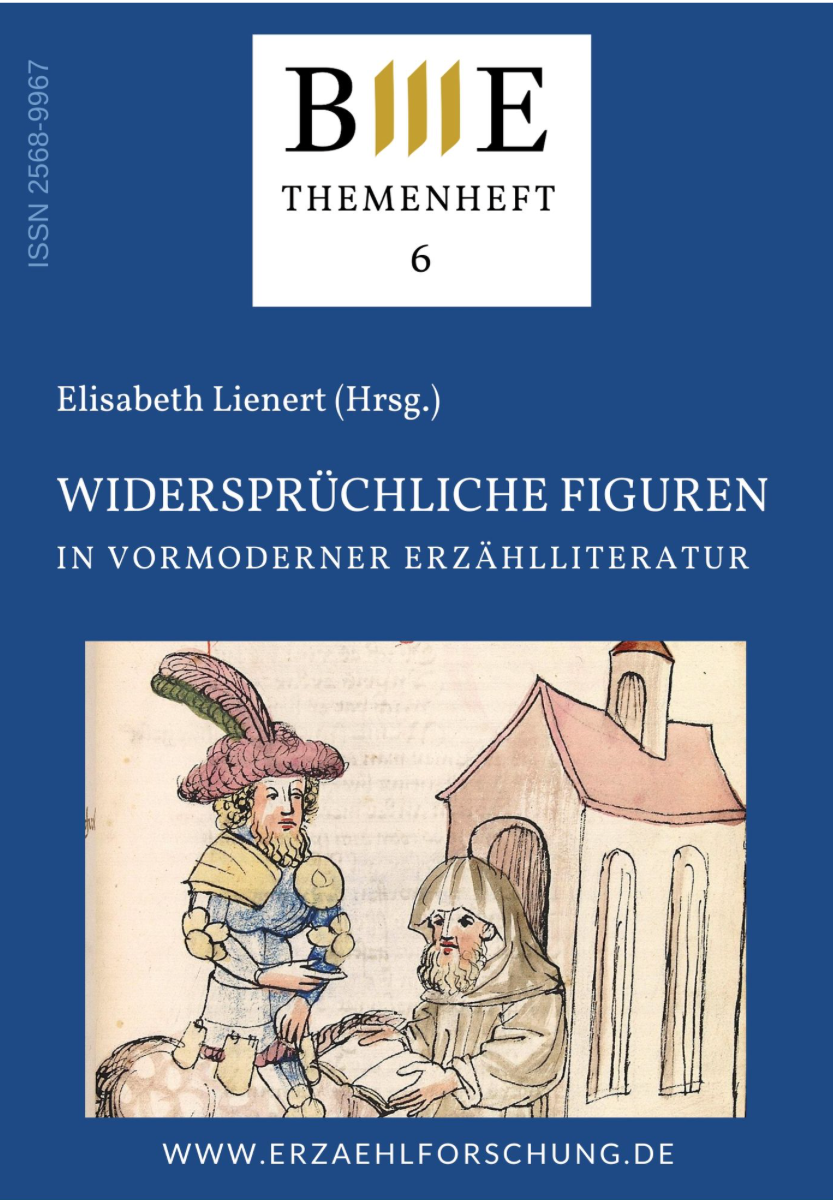 Widersprüchliche Figuren in vormoderner Erzählliteratur
Widersprüchliche Figuren in vormoderner ErzählliteraturWidersprüchliche Figuren sind Figuren, deren textinterne Figurenzeichnung widersprüchlich ist oder die im und als Widerspruch zu textexternen Diskursen und Traditionen entworfen sind. Der Band enthält Fallstudien von Vergil bis zum frühneuhochdeutschen Prosaroman und zur neuzeitlichen Nibelungenrezeption verbunden mit methodischen Überlegungen im Spannungsfeld von Figurennarratologie, Dialogforschung, historischer Anthropologie und Diskursanalyse. Eigenarten mittelalterlich-frühneuzeitlichen Erzählens (vor allem die Transtextualität vieler Figuren und ihre Bindung an Plot oder Script) werden darin ebenso deutlich wie die Notwendigkeit, Epochenklischees zu reflektieren. Die Beiträge laden dazu ein, Widersprüchlichkeit als figurennarratologische Kategorie weiterzudenken.
-
 Einleitung. Was ist eine widersprüchliche Figur?
Einleitung. Was ist eine widersprüchliche Figur?
-
 Herrschaft und Macht im Widerspruch. Problematische Könige im ›Nibelungenlied‹
Herrschaft und Macht im Widerspruch. Problematische Könige im ›Nibelungenlied‹Am Beispiel Gunthers, Siegfrieds, Dietrichs von Bern und Etzels im ›Nibelungenlied‹ untersucht der Vortrag Widersprüche zwischen Königsrang und tatsächlicher Handlungsmacht, zwischen Herrscherhandeln und Herrschaftsdiskurs. Sie verweisen auf die gattungstypische Selbstdarstellung des Kriegeradels in der Heldenepik und auf den Primat von Stoffgeschichte und Finalität der Handlung gegenüber der insofern nur ›nachgeordnet‹ widersprüchlichen Figurenkonstitution, aber auch auf Verschiebungen im Herrschaftsdiskurs.
-
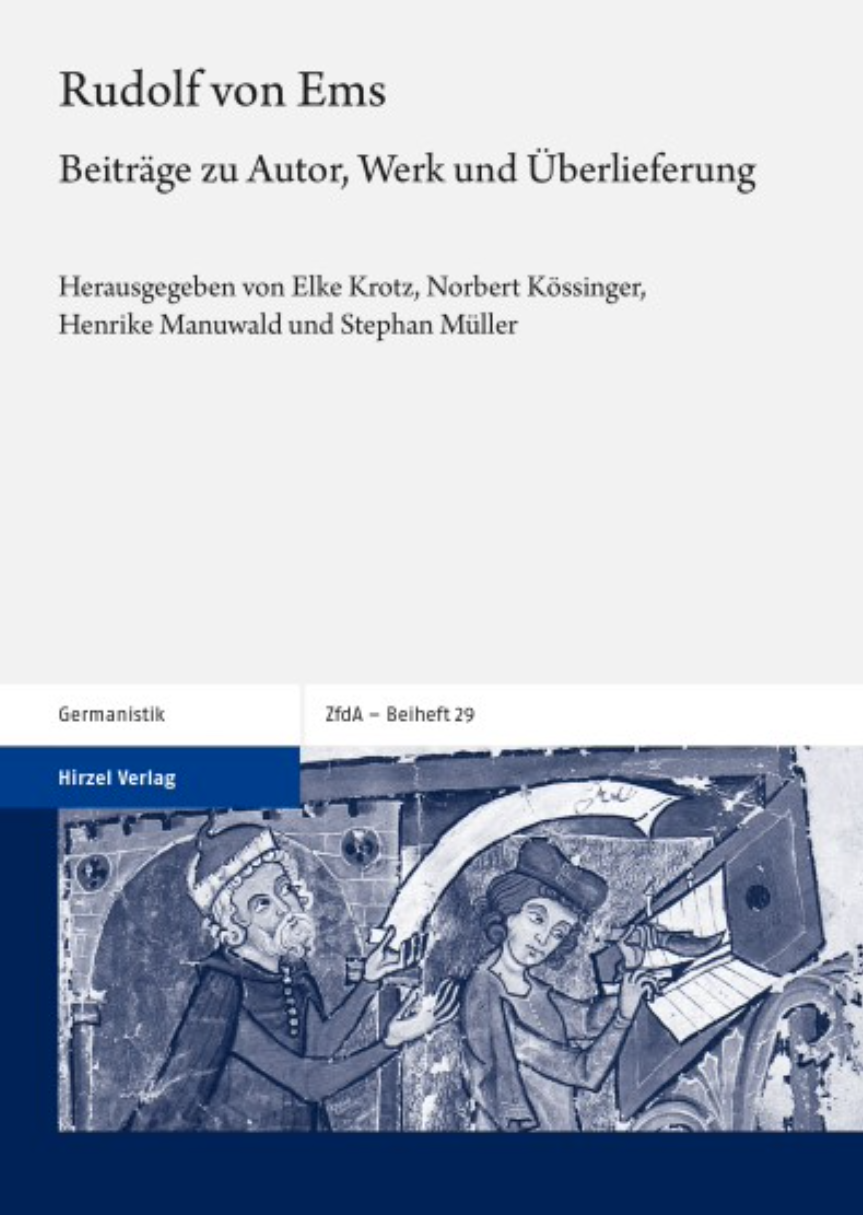 Idealisierung und Widerspruch. Zur Figurenkonstitution von Rudolfs von Ems Alexander.
Idealisierung und Widerspruch. Zur Figurenkonstitution von Rudolfs von Ems Alexander.
-
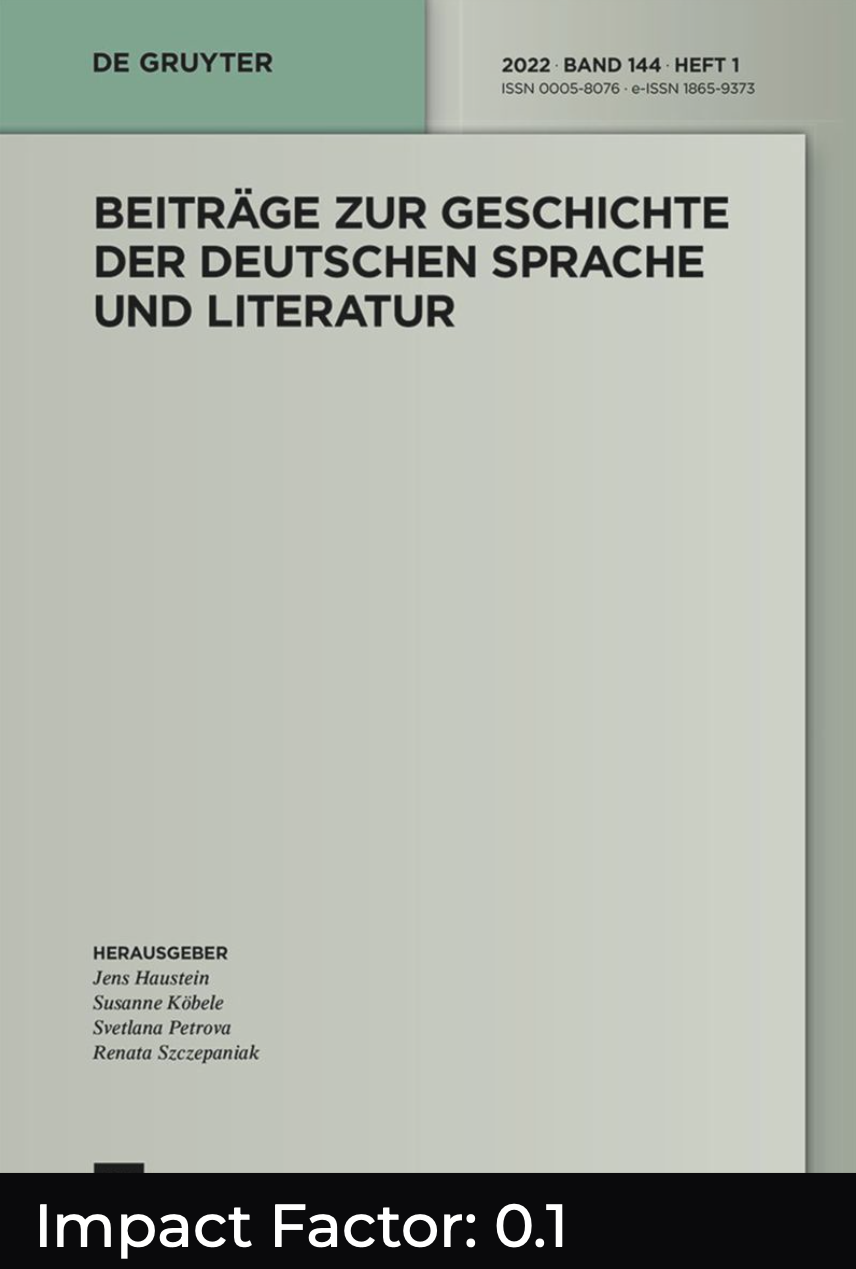 Widersprüche in heldenepischem Erzählen
Widersprüche in heldenepischem ErzählenThis article (re-)examines (marked) inconsistencies and incompatibilities in Middle High German heroic epic. Those contradictions may result from oral tradition, from the difficulties of transfering oral narratives into literacy, from the conditions of performing from memory, or from traditional narrative regularities of the genre. Frequently, they are striking side effects of a type of narration which is paradigmatic instead of syntagmatic, elliptic and aggregative, scenic and final, and therefore highly tolerant against contradictions of any kind. Contradictions and inconsistencies are (consciously or unconsciously) used (and imitated) as one of the constitutive stylistic features of heroic epic. In some cases, moreover, contradictions and inconsistencies are obviously part of an intentional poetics of contradiction ostentatiously accumulating and exhibiting different layers of knowledge and meaning. The textual strategies of heroic epic, in some respect perhaps of premodern narration in general, tend to favour discrepancies, contrasts, and contradiction instead of nuances, compromises, and smooth transitions.
-
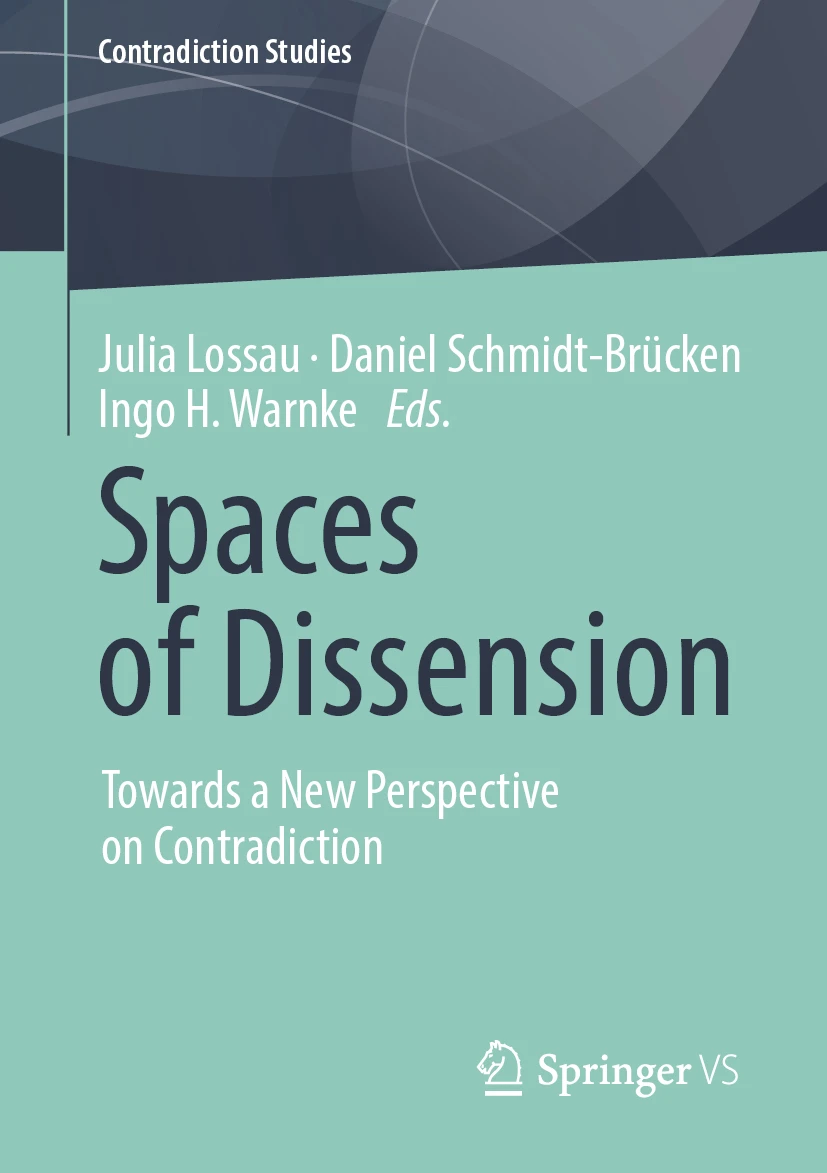 Knowledges and Contradictions in Premodern Narratives
Knowledges and Contradictions in Premodern NarrativesContradiction is not just a (post-)modern phenomenon. In premodern narratives, conflicting concepts and logical inconsistencies are omnipresent. This paper focuses on contradictions interdependent with knowledge: Traditional narratives may aggregate different versions of matters rooted in collective memory (heroic epic) or authoritative sources (romances of antiquity), sometimes without concern for the consistency of their own story. Narrative texts may use contradiction for didactic purposes. Contradictions may result in both construction and deconstruction of knowledge. Strategies of irritation and ambiguity involve recipients in the production of meaning. Thus, the concept of contradiction is apt to redefine premodern narrative strategies.
-
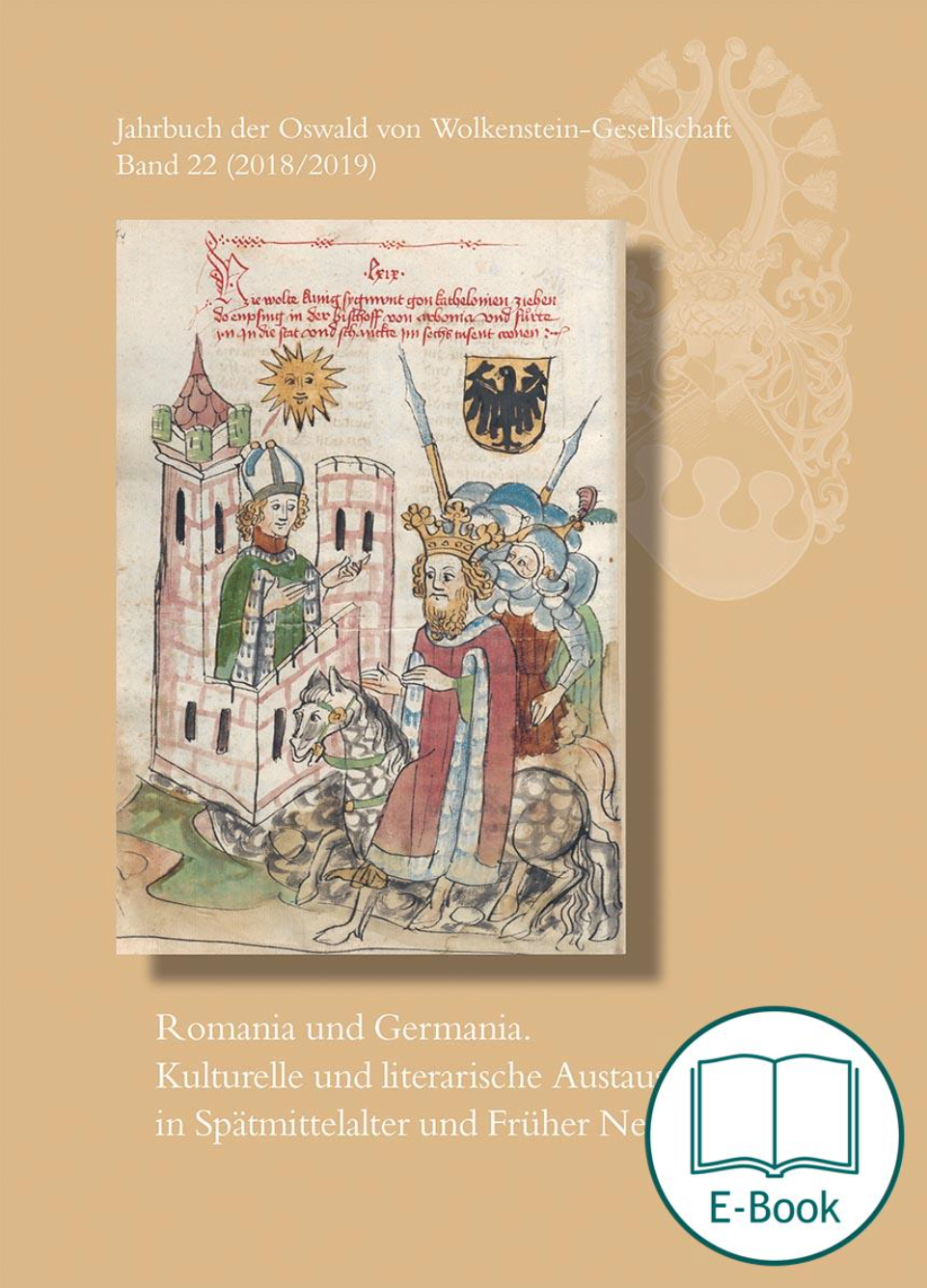 Erzähllogiken transnational. Narratologische Aspekte der Rezeption französischer Heldenepik in frühneuhochdeutscher ProsaErzähllogiken transnational
Erzähllogiken transnational. Narratologische Aspekte der Rezeption französischer Heldenepik in frühneuhochdeutscher ProsaErzähllogiken transnational